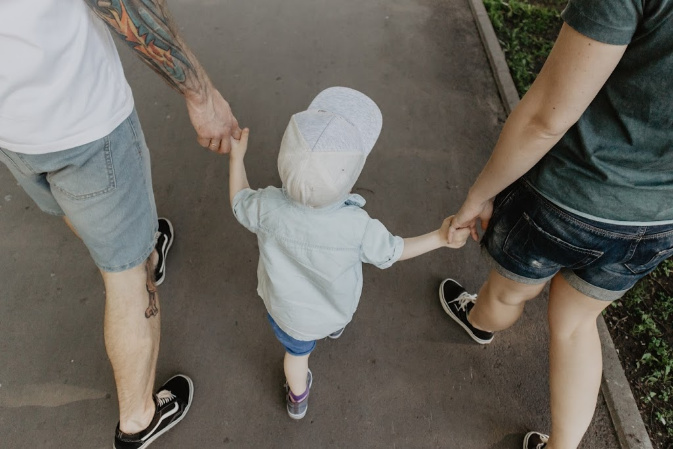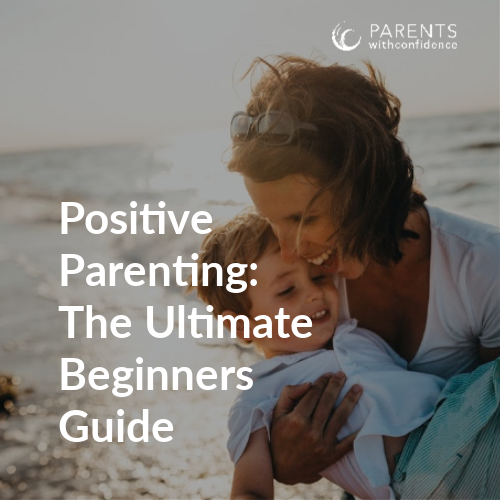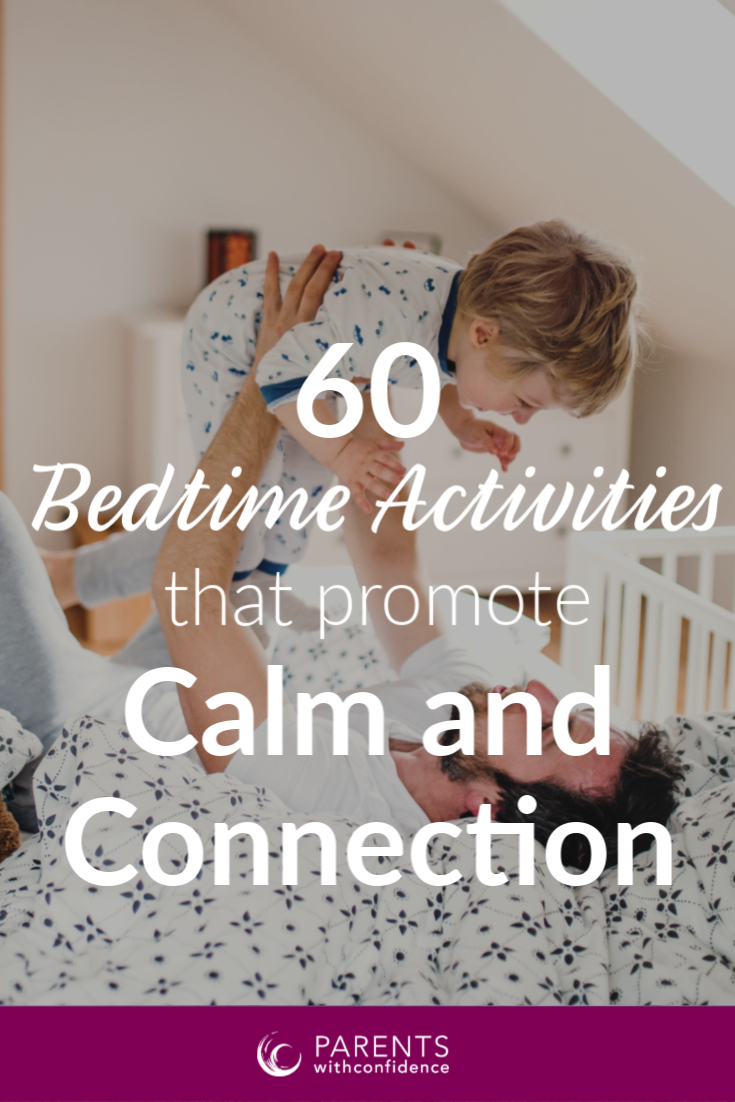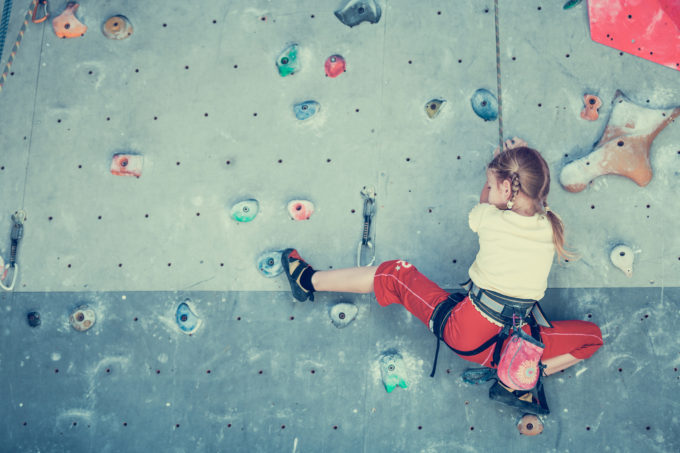This Powerful Positive Parenting Tip is Gold (to promote better behavior)
Inside: Learn the most important positive parenting tip for promoting positive behaviors in a child, and what common daily barriers get in the way of this.
My eyelids are heavy from a late night of decorating heart cookies for my seven-year old’s classroom, only to be followed by an early morning of packing lunches and finishing up homework and signing what seem to be hundreds of school forms (and where are all the dang pens anyway!?).

“Girls, time to get boots and coats on for school!”
Crickets.
After a few minutes of searching the house with clenched fists and cheeks flushed hot with frustration, I find my oldest daughter hiding under her bed: “I don’t want to go to school. I’m not going!”
Oh, crap.
What does it take to get my kids to listen?! What I missed that morning was the single most vital positive parenting tip.
This positive parenting tip is your greatest superpower
Did you know studies have found that relational discomfort is experienced in the brain the exact same way our bodies experience actual physical pain? Nuts, right?
Relationships matter. That being case, the relationship between a parent and child matters a whole lot.
The parent-child dynamic has historically been referred to in terms of attachment, which considers the quality of the relationship between parent and child in the first few years of a child’s life.
We know a secure attachment in the early years builds the foundation for future relationships and predicts a myriad of positive outcomes, such as a higher ability to cope with stress and lower incidents of behavioral problems later in life to name a couple.
Research on positive parent-child connections in the early years stretches back for decades. If we know without a shadow of a doubt that connection in the early years is hugely transformative, it makes sense that continuing to nurture strong connections with our children throughout their development would be just as powerful.

This is exactly why a strong parent-child connection is the most important positive parenting tip. Without a strong relationship serving as the base of our child’s primary needs, the rest of development and behavior will be impacted.
Whether we can always see it on the surface or not, when our child feels emotionally disconnected from you, they will feel unsettled, misunderstood, and all-around insecure.
On the other hand, when your child feels connected to you, they feel seen, heard, and accepted as individuals (knowing this is a game-changer for disciplining a child too).
Only when children feel fully accepted can they view their parents as being on the same team and trust that a parent knows what’s best, which leads to cooperation and listening.
The best part? It makes how to discipline a child much easier. A desire for cooperation, listening, and respect will flow from intrinsic motivation, meaning they want to please their parent and treat them with the same positive regard in which they are treated because it’s the right thing to do, not because they are being threatened, intimidated or forced.

6 Barriers to the Parent-child connection
Feeling connected frees up a child’s emotional assets, allowing them to show up as their best self. Sounds pretty awesome, right? These powerful moments of connection are readily available to us each day but learning how to be a positive parent means finding ways to make consistant connection happen. as well as looking out for barriers to connecting with our child that lurk about each day.
Technology
You’re there, but you’re not there. It’s all too easy to shut down in the midst of family chaos and turn towards our electronics. After all, it’s a pretty good way to accomplish a momentary sense of control and calm, thanks to the quick hit of dopamine we get from a Facebook ‘like’.
But the benefits are fleeting, and soon you’ll need to split up the children because they’re chasing each other around with pointy objects, which could have been avoided altogether if you’d chosen to engage with them instead of your phone.

Overscheduling
“Running around every night is exhausting, but everyone else’s kindergartner is on varsity club intramural championship soccer!”
There’s a lot of pressure for kids to do it all. When that pressure tugs on our mom jeans, we need to remember that what kids really need for optimal development is time for free play and connection with their caregivers.
Related resource:: Want effective discipline WITHOUT emotional damage? The ‘Positive Discipline Set’ is 40% off for a limited time!
Mental baggage
It can be challenging to leave work stress or that nagging conversation with our own mom at the door. Children aren’t the only ones pressured to do it all these days. When we’re with our children but our thoughts are elsewhere, they pick up on it. (note to self they pick up on all the other things, too.)
Only when we take note of our wandering thoughts and re-engage with the present moment can we reap the benefits of the opportunity to connect.
Control tendencies
When we meet our child exactly where they’re at, that, my friends, is the sweet spot for connection. A large percentage of time, where they’re at – or should be at – is in the midst of play.
It may be hard to jump into a dramatic role play of the ice palace scene from “Frozen” when we’re exhausted from a long day. But instead of steering children toward what we’d like to do, there is magic to be found in immersing ourselves in their world.
Getting stuck in routines
When we’re on the parent front lines, trying to army crawl our way through daily challenges, such as bedtime and getting out the door for school, it’s easy to go into robot mode. Our minds focus on the tasks at hand, and we neglect to see that these daily routines can be fantastic times to implement rituals of connection.
Special handshakes before school or a morning prayer together show your children they are the center of your focus in that moment. Getting creative with some daily bonding activities that promote connection with your child will be fun and beneficial throughout their day.
Related >> 75 Calm Down Strategies for Kids (that work!)
Missing small moments
Odds are, if we sit around waiting for an hour block of “quality time” with our child to present itself, it will never come. The awesome thing is, we don’t need it to. Myriads of opportunities for connecting with your child lie dormant in the small and seemingly inconsequential events that unfold throughout the day.
Some great examples are positive parenting techniques such as eye contact, laughter, and physical touch. Sharing a joke on the way to school or a meaningful cuddle out of the blue make a big difference.
Neglecting the biggest positive parenting tip will dig you a large hole…
With only a few minutes to get my daughter on the bus, I know I have to work fast. (Luckily, as a therapist, I have ninja superpowers when it comes to listening and validating my children’s feelings – so much so that they often exclaim, “Stop doing that!” in loud annoyance as I’m reflecting back what I hear.)
After a few minutes of mentally setting aside my morning timeline and empathizing with my daughter’s worries about a friend leaving her out of a game at recess, I playfully encourage her to skip downstairs with me to get our coats and shoes on. Feeling secure and connected, she can now move forward with her day and happily skipped along.
Next time, I’ll need to remember the most vital positive parenting tip to improve child behavior and not dig that hole… The bus came and went, and I had to drive her to school anyway.
Raising emotionally healthy kids isn’t easy (but that’s why I’m here!) I created a free 5-day email course just for you, loaded with my expert tips on confidence, positive discipline and emotions. Sign up below!
Other articles you’d love:
10 Insights of Remarkable Parents
5 Parenting Mindsets that are Toxic to Your Child













Thank you for the reflective reminders of childhood oemotional needs.
I’m a stepgrandfather 68 yrs old raising 3 grandchildren boys 15,6&9. One grandchild female age 13 lives in a foster home. Sad but true.
Will keep researching parenting as I never had children of my own.
Your investment in parenting these kids will make a life-long impression on their emotional health and well-being, so glad you found the article helpful!